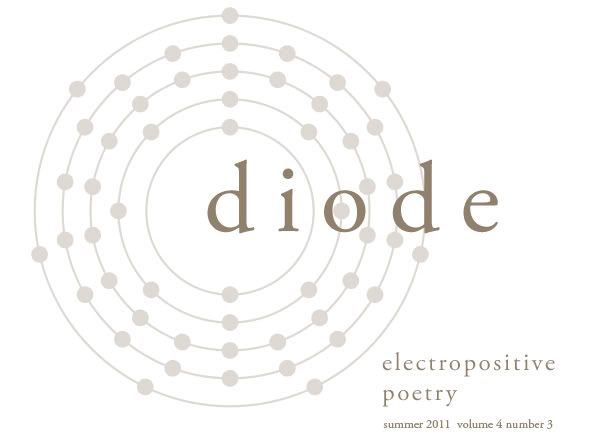26 July 2011
24 July 2011
REVIEW: Correct Animal

Armsdecorate the tree.Ornaments danglingfrom every branch. (3)
He disrupts you—you area very bad mother—and moves youto a mood.You did sweatinto skin.You did swimtoward the tear. (29)
22 July 2011
Hammy Hamburglar's Second Favorite Band

After Smoochknob, Hammy Hamburglar's favorite band is Barenaked Ladies. Over double Long Island Iced Tea's me and him have discussed their debut album Gordon quite a bit. Hammy say it's his favorite. There's the epic cover up above.
Lyonel Feininger

The Newspaper Readers

Carnival in Arcueil
"Feininger is best known for the semi-abstract landscapes and cityscapes that he started painting in earnest. In them shafts of blurry light, falling on indistinct suggestions of church steeples, buildings, sailboats and ocean waves, suggest a kind of heavenly immanence."
20 July 2011
John Maus
19 July 2011
Excerpted from "Maximus to Gloucester, Letter 27 (withheld)" by Charles Olson

An American
is a complex of occasions,
themselves a geometry
of spatial nature.
I have this sense
that I am one
with my skin
Plus this—plus this:
that forever the geography
which leans in
on me I compell
backwards I compell Gloucester
to yield, to
change
Polis
is this
Excerpted from “Relearning the Alphabet” by Denise Levertov

U
Relearn the alphabet,
relearn the world, the world
understood anew only in doing, under-
stood only as
looked-up-into out of earth,
the heart an eye looking,
the heart a root
planted in earth.
Transmutation is not
under the will’s rule.
W
Wisdom’s a stone
dwells in forgotten pockets—
lost, refound, exiled—
revealed again
in the palm of
mind’s hand, moonstone
of wax and wane, stone pulse.
18 July 2011
This Week on No Tell Motel

I'll be the featured poet over at No Tell Motel this week. Each day, Monday through Friday, a new micro-poem from my series "Specimen Cuts" will appear. They're so fucking small, it won't take you but a moment to read them. So do it.
13 July 2011
The Lover by Paul Eluard

She is standing on my eyelids
And her hair is in my hair,
She has the shape of my hands,
The colour of my eyes.
She is absorbed in my shadow,
Like a stone upon the sky.
She keeps her eyes open
And doesn’t let me sleep.
Her dreams in broad daylight
Make the suns evaporate,
Make me laugh, weep and laugh,
And speak, without a thing to say.
For Jeffboy: New Weezy Mix-Tape

11 July 2011
Micro-Review: Left Having

In his second full-length collection Left Having from Kenning Editions, Jesse Seldess explores the possibilities of repetition, “[r]egardless the echo that it takes.” To wit, even if "the airwaves" (i.e. our vocalizations of these poems) end up being "broke signaling" that sound "Across the shattered airwaves // Across the scattered airwaves," the auditory momentum of these lines carries us through words that are "gathered as by some order." True, each poem therein "falls apart on its own over time," at least in the sense that they cease to communicate salient information, but this hardly seems to be the point. Instead, the poems function as texts that "String...the words together to keep [us] warm." Warmth, it could be argued, functions synecdochically for all physical or affective reactions we have to these poems. As such, when signification "falls apart," our bodies begin to "warm" up so as "to be reformed" into echo-machines that produce "One word after the other." But why would one want to cast-off meaning in favor of sound? The answer, perhaps, can be found in the final poem, titled "End": "Separating // Thought" from words affords us the opportunity to "happen," which is to be, existing in the moment.
09 July 2011
04 July 2011
02 July 2011
diode: V4n3

it is only the imagination
that can resist the imagination,it is only the imagination
that can withstand, uphold,
subvert and resistthe imagination


